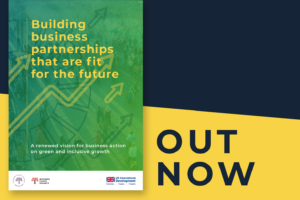Rules can get a bad name. We often don’t like rules, but rules can actually create bridges for people in a couple of ways.
First, without some rules, one cannot even have an activity. Unless one has rules, soccer or baseball or any other sport can’t exist. One has to know how to play the game. Do you throw a soccer ball? Do you kick a baseball? Well, you can, but then you really not playing the game. The same is true for most activities. We need to have some foundational rules in order for people to interact with each other.
Second, if people have a voice in the rules that apply to them or at least have a clear understanding of the reason behind the rules, then rules offer something for people to appeal to, something that the believe is fair, and when there are disagreements, these rules – these processes – can allow people to find common ground in the rules and processes even if they disagree otherwise.
[iframe width=”560″ height=”315″ src=”https://www.youtube.com/embed/saeRAphpZtM” title=”YouTube video player” frameborder=”0″ allow=”accelerometer; autoplay; clipboard-write; encrypted-media; gyroscope; picture-in-picture” allowfullscreen></iframe]
Editor’s Note:










